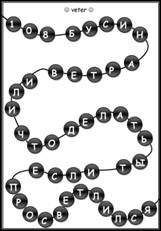Эйда Кэлхун - Библия моды
20. Сумки
Вы обожаете сумки? Вы ведь знаете, что не обязательно тратить тонны денег на сумку? Это хорошо. А теперь проверьте, есть ли у вас большая повседневная сумка, в которую поместится все, что вам нужно, и маленькая вечерняя сумочка, куда можно положить ключи, помаду и то, что может понадобиться? Мужчины, у вас есть сумка через плечо, сумка-тоут или портфель? Тогда вы полностью собраны.
Поздравляю! Теперь вы знаете, что у вас есть, чего не хватает и какого размера должна быть каждая из ваших вещей. Вы знаете историю своей одежды, и я надеюсь, вас вдохновили какие-нибудь из великолепных и потрясающих нарядов прошлого. Теперь мы можем двигаться дальше, в самый увлекательный период истории моды – будущее.
Ссылки
Introduction: Why a History of Western Fashion?
1. Patricia Rieff Anawalt, The Worldwide History of Dresss (New York: Thames & Hudson, 2007), 101.
1. Underwear: Security vs. Freedom
1. Akiko Fukai, ed. Fashion: A History from the 18th to the 20th Century, vol. II (Cologne: Taschen, 2006), 338–339.
2. www.staylace.com/textarea/newspaperarticles/star_tribune020900.html.
3. Grace Evans, “Underwear,” in Berg Encyclopedia of World Dress and Fashion, vol. 8, West Europe.
4. James Laver, Taste and Fashion: From the French Revolution Until Today (London: G. G. Harrap, 1937), 49–50.
5. Colleen Gau, “Brassiere,” in A – Z of Fashion.
6. Vintageadsandstuff.com/maidenform.
7. “Maidenform Blushes,” Time, April 25, 1983, www.time.com/time/magazine/article/0,9171,923573,00.html.
8. Leigh Summers, “‘Elegance, Comfort, and Durability!’ Class, Countours, and Corsetry,” chapter 3 of Bound to Please: A History of the Victorian Corset (London: Berg, 2001).
9. Marianne Thesander, The Feminine Ideal, trans. Nicholas Hills (London: Reaktion Books, 1997), 26.
10. Ibid., 43.
11. David Kunzle, quoted in Thesander, ibid., 43.
12. Sara Pendergast and Tom Pendergast, Fashion, Costume, and Culture: Clothing, Headwear, Body Decorations, and Footwear Through the Ages, vol. 5 (Detroit: UXL, 2004), 978.
13. Alison Lurie, The Language of Clothes (New York: Henry Holt, 2000), 249.
14. Naomi E. A. Tarrant, “England,” in Berg Encyclopedia, vol. 8, West Europe.
15. Elizabeth Hawes, It’s Still Spinach (Boston: Little, Brown, 1954), 137.
16. Phyllis G. Tortora, “Types and Properties of Fashionable Dress,” in Berg Encyclopedia of World Dress and Fashion, vol. 3, The United States and Canada.
17. Susan M. Watkins, “Fashion, Health, and Disease,” in A – Z of Fashion, quoting Bernard W. H. Rudofsky, Are Clothes Modern?
18. Tarrant, “England.”
19. Mireille M. Lee, “Ancient Greek Dress,” in Berg Encyclopedia, vol. 9, East Europe, Russia, and the Caucasus.
20. James Laver, Costume and Fashion: A Concise History (New York: Thames & Hudson, 2002), 50.
21. Ibid., 58.
22. Rodney Bennett-England, Dress Optional: The Revolution in Menswear (London: Peter Owen, 1967), 40.
23. Ibid.
24. Charlotte Mankey Calasibetta and Phyllis Tortora, eds., The Fairchild Dictionary of Fashion, 3rd ed. (New York: Fairchild Publications, 2003), 462.
25. Jan Glier Reeder, High Style: Masterworks from the Brooklyn Museum Costume Collection at the Metropolitan Museum of Art (New York: Metropolitan Museum of Art, 2010), 197.
2. T-Shirts: From Underwear to Everywhere
1. www.scribd.com/doc/33873413/1892-Dr-Jaeger-s-Sanitary-Woolen-System-Company-Catalogue.
2. Alice Harris, The White T (New York: HarperCollins, 1996), 16.
3. Dennita Sewell, “T-Shirt,” in A – Z of Fashion.
4. Ed Branigan, “The Evolution of Garment Printing,” SGIA Journal (second quarter, 2010), 24.
5. Sewell, “T-Shirt.”
6. Branigan, “The Evolution of Garment Printing,” 24.
7. Harris, The White T, 20.
8. Sewell, “T-Shirt.”
9. Branigan, “The Evolution of Garment Printing,” 25.
10. Harris, The White T, 34–35, photo.
11. Harris, The White T, 47, photo.
12. Tommy Hilfiger, All-American (New York: Universe, 1997), 60.
13. Branigan, “The Evolution of Garment Printing,” 25.
14. www.sojones.com/news/1465-the-most-famous-statement-t-shirts/.
15. Amber Easby and Henry Oliver, The Art of the Band T-Shirt (New York: Gallery, 2007), 3.
16. Ibid.
17. Ibid., 33.
18. Kendra Nordin, “Smiley Face: How an In-House Campaign Became a Global Icon,” The Christian Science Monitor, October 4, 2006, 1, www.csmonitor.com/2006/1004/p15s01-algn.html.
19. Charlotte Brunel, The T-Shirt Book, foreword by Bruno Collin (New York: Assouline, 2002), 14.
20. Imani Perry, “‘Malcolm X,’ by Manning Marable,” San Francisco Chronicle (April 24, 2011), www.sfgate.com/cgi-bin/article.cgi?f=/c/a/2011/04/23/RV611J2B0B.DTL.
21. Harris, The White T, 13.
22. Michiko Kakutani, “Brand Che: Revolutionary as Marketer’s Dream,” The New York Times, April 20, 2009, www.nytimes.com/2009/04/21/books/21kaku.html?scp=1sq=&st=nyt.
23. Ibid.
24. www.condenaststore.com/-sp/Che-Guevara-wearing-a-Bart-Simpson-T-shirt-New-Yorker-Cartoon-Prints_i8544414_.htm.
25. Brunel, The T-Shirt Book, 9.
3. Jeans: The Italian, French, German, English, Indian, All-American Garment
1. James Sullivan, Jeans: The Cultural History of an American Icon (New York: Gotham Books, 2006), 14.
2. Clare Sauro, “Jeans,” in A – Z of Fashion.
3. Ibid.
4. http://blog.urbanoutfitters.com/features/the_levis_archives?cm_mmc=broadcast-_-Q32010-_-100812levisBuyers-_-banner& [email protected]
5. Robert Selbie, The Anatomy of Costume (New York: Crescent Books, 1977), 4.
6. Sullivan, Jeans, 13.
7. Carl Sandburg, Abraham Lincoln: The Prairie Years and the War Years, ed. Edward C. Goodman (Boston: Mariner Books, 2002), 27.
8. www.forbes.com/2005/11/29/most-expensive-jeans-cx_sy_1130feat_ls.html.
4. Dresses: From the
Toga to the Wrap Dress
1. Phyllis Tortora, “Toga” in A – Z of Fashion.
2. Robert Selbie, The Anatomy of Costume (New York: Crescent Books, 1977), 18.
3. Ibid., 14.
4. www.stanford.edu/~plomio/history.html.
5. François Boucher, 20,000 Years of Fashion: The History of Costume and Personal Adornment, expanded ed. (New York: Harry N. Abrams, 1987), 303.
6. Patricia A. Cunningham, “Dress Reform,” in Berg Encyclopedia of World Dress and Fashion, vol. 3, The United States and Canada.
7. Rebecca Arnold, “Madeleine Vionnet,” in A – Z of Fashion.
8. James Laver, Taste and Fashion: From the French Revolution Until Today (London: G. G. Harrap, 1937), 124.
9. Hal Vaughan, Sleeping with the Enemy: Coco Chanel’s Secret War (New York: Knopf, 2011), 142.
10. Liz Mellish, “Early History of Dress,” in Berg Encyclopedia of World Dress and Fashion, vol. 9, East Europe, Russia, and the Caucasus.
11. Gillian Tineke Vogelsang-Eastwood Rooijakkers, “Egypt: Historical Dress,” in Berg Encyclopedia of World Dress and Fashion, vol. 1, Africa.
12. Ibid.
13. Ibid.
14. James Laver, Costume (London: Cassell, 1963), 7.
15. Ibid., 32.
16. Ibid., 36.
17. Ibid., 45.
18. James Laver, Costume and Fashion: A Concise History (New York: Thames & Hudson, 2002), 97.
19. Ibid., 97.
20. Melissa Leventon, What People Wore When: A Complete Illustrated History of Costume from Ancient Times to the Nineteenth Century for Every Level of Society (New York: St. Martin’s Griffin, 2008), 154–155.
21. Boucher, 20,000 Years of Fashion, 251.
22. Ibid., 291.
23. Laver, Costume and Fashion, 130.
24. Alison Lurie, The Language of Clothes (New York: Henry Holt, 2000), 64.
25. Ibid., 69.
26. Laver, Costume and Fashion, 184–186.
27. Key Moments in Fashion: From Haute Couture to Streetwear, Key Collections, Major Figures and Crucial Moments That Changed the Course of Fashion History from 1890 to the 1990s (London: Hamlyn, 1998), 15.
28. Anne Stegemeyer, Who’s Who in Fashion, 2nd ed. (New York: Fairchild Publications, 1988), 5.
29. Ibid., 32.
30. “Carmen Says: A Couture Veteran Discusses the Way Things Were, Are, and May Never Be Again,” Garmento, Issue 1 (2010), 45.
31. GeoffreyBeane.com.
32. Jane Eastoe and Sarah Gristwood, Fabulous Frocks (London: Pavilion, 2008), 6–7.
33. Judith Watt, ed., The Penguin Book of Twentieth-Century Fashion Writing (New York: Viking, 1999), 175.
34. Arnold Scaasi, Women I Have Dressed (and Undressed!) (New York: Scribner, 2004), 111–112.
35. Caroline Evans, Fashion at the Edge: Spectacle, Modernity and Deathliness (New Haven, CT: Yale University Press, 2003), 71.
36. Urmee Khan, “Liz Hurley ‘Safety Pin’ Dress Voted the Greatest Dress,” The Telegraph (October 9, 2008), www.telegraph.co.uk/news/celebritynews/3167702/LizHurley-safety-pin-dress-voted-the-greatest-dress.html.
37. Georgina O’Hara, The Encyclopedia of Fashion (New York: Harry N. Abrams, 1986), 32.
5. Capri Pants and Shorts:
The Plague on Our Nation
1. Alison Lurie, The Language of Clothes (New York: Henry Holt, 2000), 45.
2. Ibid., 46.
3. Joseph H. Hancock II and Edward Augustyn, “Pants, Trousers,” In Berg Encyclopedia, vol. 10, Global Perspectives.
4. Richard Martin and Harold Koda, Jocks and Nerds: Men’s Style in the Twentieth Century (New York: Rizzoli, 1989), 113.
5. Ibid., 121.
6. Skirts: Mini, Midi, Maxi, and More
1. Paul Poiret, King of Fashion: The Autobiography of Paul Poiret, trans. Stephen Haden Guest (London: V&A Publishing, 2009), 36.
2. Quentin Bell, On Human Finery, rev. ed. (London: Hogarth Press, 1976), 37.
3. James Laver, Taste and Fashion: From the French Revolution Until ToDay (London: G. G. Harrap, 1937), 49–50, 55.
4. Myra Walker, “Miniskirt,” in A – Z of Fashion.
5. Ibid.
6. Sara Pendergast and Tom Pendergast, Fashion, Costume, and Culture: Clothing, Headwear, Body Decorations, and Footwear Through the Ages, ed. Sarah Hermsen, vol. 5 (Detroit: UXL, 2004), 908–909.
7. Ralph Graves, ed., “The Midi Muscles In,” Life, August 21, 1970.
8. Valerie Steele, Encyclopedia of Clothing and Fashion, vol. 2 (Farmington Hills, MI: Charles Scribner’s Sons, 2005), 9.
9. Andrew Bolton, Bravehearts: Men in Skirts (London: V&A Publications, 2003), 26–27.
7. Belts: Friend to Soldiers and Vixens
1. www.iceman.it.
2. James Laver, Costume (New York: Hawthorn Books, 1964), 2.
3. Ibid.
4. Valerie Cumming, C. W. Cunnington, and P. E. Cunnington, The Dictionary of Fashion History (Oxford: Berg, 2010), 11.
5. Berg Fashion Library, image of embroidered canvas suspenders, 1840.
8. Dress Shirts: Prudery and Puffery
1. Ester Juhasz, “Jewish Dress in Central and Southwest Asia and the Diaspora,” in Berg Encyclopedia of World Dress and Fashion, vol. 5, Central and Southwest Asia.
2. James Laver, Costume and Fashion: A Concise History (New York: Thames & Hudson, 2002), 97.
3. Ibid., 76 (image).
4. Ibid., 79.
5. Richard Martin and Harold Koda, Jocks and Nerds: Men’s Style in the Twentieth Century (New York: Rizzoli, 1989), 15.
6. Ibid., 16–17.
9. Ties and Scarves: Color Me Beautiful, Hermès, and Other Cults
1. Jean-Louis Dumas-Hermès, How to Wear Your Hermès Scarf (Paris: Editions Hermès, 1986), 1.
2. Nadine Coleno, The Hermès Scarf: History and Mystique (London: Thames & Hudson, 2009), 29.
3. Andrew Baseman, ed., The Scarf (New York: Stewart, Tabori and Chang, 1989), 50.
4. Coleno, The Hermès Scarf, 18.
5. Baseman, The Scarf, 50.
6. Jan Glier Reeder, High Style: Masterworks from the Brooklyn Museum Costume Collection at the Metropolitan Museum of Art (New York: Metropolitan Museum of Art, 2010), 198.
7. James Laver, Taste and Fashion: From the French Revolution Until Today (London: G. G. Harrap, 1937), 22.
8. Simon Doonan, “Bring Back Nancy Red!” The New York Observer, January 8, 2001, www.observer.com/2001/01/bring-back-nancy-red/.
9. Nina Lalli, “Checkered Past: Arafat’s Trademark Scarf Is Now Military Chic,” Village Voice, February 15, 2005, www.villagevoice.com/2005–02–15/nyc-life/checkered-past/.
10. Anna König, “Neckties and Neckwear,” in A – Z of Fashion.
11. Ibid.
12. Avril Hart, Ties (New York: Costume & Fashion Press, 1998), 68.
13. Richard Martin and Harold Koda, Jocks and Nerds: Men’s Style in the Twentieth Century (New York: Rizzoli, 1989), 9.
10. Vests: Take That, France!
1. James Laver, Costume and Fashion: A Concise History (New York: Thames & Hudson, 2002), 54.
2. Valerie Cumming, C. W. Cunnington, and P. E. Cunnington, The Dictionary of Fashion History (Oxford: Berg, 2010), 218.
3. Memoirs and Interesting Adventures of an Embroidered Waistcoat (London: printed for and sold by J. Brooke, at the Golden Head, under St. Dunstan’s Church, Fleet-Street, 1751), 12.




